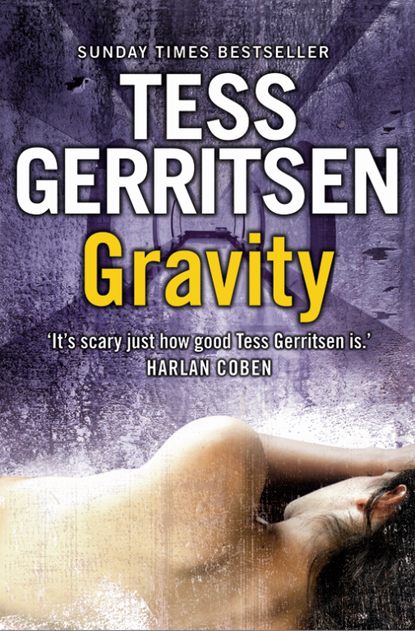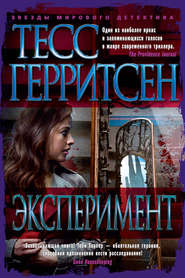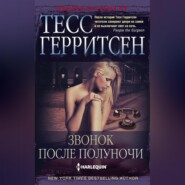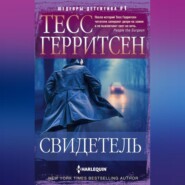По всем вопросам обращайтесь на: info@litportal.ru
(©) 2003-2024.
✖
Gravity
Автор
Год написания книги
2018
Настройки чтения
Размер шрифта
Высота строк
Поля
The two visitors merely blinked. It was not a good sign when the universal language of Star Wars failed to elicit a smile.
Sullivan shook hands, first with Lucas, then with Rashad, grinning broadly even as his hopes sank. Even as he felt a surge of resentment toward these two well-dressed gentlemen whose money he and Casper so desperately needed. Apogee Engineering, their baby, the dream they had nurtured for the past thirteen years, was about to go under, and only a fresh infusion of cash, from a new set of investors, could save it. He and Casper had to make the sales pitch of their lives. If it didn’t work, they might as well pack up their tools and sell off the orbiter as a carnival ride.
With a flourish, Sullivan waved his arm at Apogee II, which looked less like a rocket plane and more like a fat fireplug with windows.
‘I know she may not look like much,’ he said, ‘but what we’ve built here is the most costeffective and practical reusable launch vehicle now in existence. She uses an assisted SSTO launch system. After vertical takeoff, upon climbing to twelve kilometers, pressure-fed rockets accelerate the vehicle to a Mach four staging point at lowdynamic pressures. This orbiter is fully reusable, and weighs only eight and a half tons. It fulfills the principles we believe are the future of commercial space travel. Smaller. Faster. Cheaper.’
‘What sort of lift engine do you use?’ asked Rashad.
‘Rybinsk RD-38 air-breathing engines imported from Russia.’
‘Why Russian?’
‘Because, Mr Rashad—between you, me, and the wall—the Russians know more about rocketry than anyone else on earth. They’ve developed dozens of liquid-fueled rocket motors, using advanced materials which can operate at higher pressures. Our country, I’m sorry to say, has developed only one new liquid-fueled rocket motor since Apollo. This is now an international industry. We believe in choosing the best components for our product—wherever those components may come from.’
‘And how does this…thing land?’ asked Mr Lucas, looking dubiously at the fireplug orbiter.
‘Well, that’s the beauty of Apogee II. As you’ll notice, she has no wings. She doesn’t need a runway. Instead she drops straight down, using parachutes to slow her descent and air bags to cushion touchdown. She can land anywhere, even in the ocean. Again, we have to tip our hats to the Russians, because we’ve borrowed features from their old Soyuz capsule. It was their reliable workhorse for decades.’
‘You like that old Russki technology, huh?’ said Lucas.
Sullivan stiffened. ‘I like technology that works. Say what you want about the Russians, they knew what they were doing.’
‘So what you have here,’ said Lucas, ‘is something of a hybrid. Soyuz mixed in with space shuttle.’
‘A very small space shuttle. We’ve spent thirteen years in development and only sixty-five million dollars to get this far—that’s amazingly inexpensive when you compare it to what the shuttle cost. With multiple spacecraft, we believe you’ll get an annual return on investment of thirty percent, if we launch twelve hundred times a year. Cost per flight would be eighty thousand dollars; the price per kilogram would be dirt cheap at two hundred seventy. Smaller, faster, cheaper. That’s our mantra.’
‘How small are we talking about, Mr Obie? What’s your payload capacity?’
Sullivan hesitated. This was the point where they might lose them. ‘We can launch a payload of three hundred kilograms, plus a pilot, to low earth orbit.’
There was a long silence.
Mr Rashad said, ‘That’s all?’
‘That’s almost seven hundred pounds. You can fit a lot of research experiments in—’
‘I know how much three hundred kilos is. It’s not much.’
‘So we make up for it by more frequent launches. You can almost think of it as an airplane to space.’
‘In fact—in fact, we’ve already got NASA’s interest!’ Casper interjected with a note of desperation. ‘This is just the kind of system they might purchase for quick hops to the space station.’
Lucas’s eyebrow shot up. ‘NASA is interested?’
‘Well, we have something of an inside track.’
Aw, shit, Casper, thought Sullivan. Don’t go there.
‘Show them the newspaper, Sully.’
‘What?’
‘Los Angeles Times. Second page.’
Sullivan looked down at the L.A. Times that Bridget had thrust in his hand. He turned to the second page and saw the article: ‘NASA Launches Astronaut Replacement.’ Next to it was a photograph of JSC high-muck-a-mucks at a press conference. He recognized the homely guy with the big ears and the bad haircut. It was Gordon Obie.
Casper snatched the paper and showed it to their visitors. ‘See this man here, standing next to Leroy Cornell? That’s the director of Flight Crew Operations. Mr Obie’s brother.’
The two visitors, obviously impressed, turned and looked at Sullivan.
‘Well?’ said Casper. ‘Would you gentlemen care to talk business?’
‘We might as well tell you this up front,’ said Lucas. ‘Mr Rashad and I have already taken a look at what other aerospace companies have in development. We’ve looked over the Kelly Astroliner, the Roton, the Kistler K-1. We were impressed by all of them, especially the K-1. But we figured we should give your little company a chance to make a pitch as well.’
Your little company.
Fuck this, thought Sullivan. He hated begging for money, hated getting down on his knees before stuffed shirts. This was a hopeless campaign. His head ached, his stomach was growling, and these two-suits had wasted his time.
‘Tell us why we should bet on your horse,’ said Lucas. ‘What makes Apogee our best choice?’
‘Frankly, gentlemen, I don’t think we are your best choice,’ Sullivan answered bluntly. And he turned and walked away.
‘Uh—excuse me,’ said Casper, and he went chasing after his partner. ‘Sully!’ he whispered. ‘What the hell are you doing?’
‘These guys aren’t interested in us. You heard them. They love the K-1. They want big rockets. To match their dicks.’
‘Don’t screw this up! Go back and talk to them.’
‘Why? They’re not writing us any checks.’
‘We lose them, we lose everything.’
‘We’ve already lost.’
‘No. No, you can sell this to them. All you have to do is tell the truth. Tell them what we really believe. Because you know and I know we’ve got the best.’
Sullivan rubbed his eyes. The aspirin was wearing off, and his head pounded. He was sick of begging. He was an engineer and a pilot, and he’d happily spend the rest of his life with his hands blackened by engine grease. But it would not happen, not without new investors. Not without new cash.
He turned and walked back to the visitors. To his surprise, both men seemed to regard him with wary respect. Perhaps because he had told the truth.
‘Okay,’ said Sullivan, emboldened by the fact he had nothing to lose. He might as well go down like a man. ‘Here’s the deal. We can back up everything we’ve said with one simple demonstration. Are the other companies ready to launch at the drop of a hat? No, they are not. They need preparation time,’ he sneered. ‘Months and months of it. But we can launch anytime. All we need to do is load this baby onto its booster and we can shoot her up to low earth orbit. Hell, we can send her up to hotdog the space station. So give us a date. Tell us when you want liftoff, and we’ll do it.’
Casper turned as white as a—well, a ghost. And not a friendly one. Sullivan had just taken them so far out on a limb they were clawing at thin air. Apogee II hadn’t been tested yet. She had been sitting in this hangar for over fourteen months, gathering dust while they scrounged for money. On this, her maiden voyage, Sully wanted to launch her all the way to orbit?
‘In fact, I’m so confident she’ll pass muster,’ said Sullivan, raising the stakes even higher, ‘I’ll ride in the pilot’s seat myself.’
Casper clutched his stomach. ‘Uh…that’s just a figure of speech, gentlemen. She can be flown perfectly well unmanned—’

















